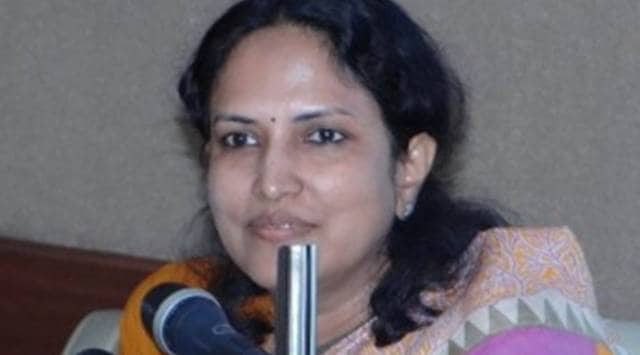Denied elevation, judge who gave ‘no skin-to-skin contact’ order resigns
The Collegium’s rare decision to demote the judge meant that once her tenure as additional judge ended on February 12, Justice Ganediwala would have been sent back to the district judiciary.
 Justice Pushpa V Ganediwala (File)
Justice Pushpa V Ganediwala (File)Two days before the end of her tenure, Justice Pushpa V Ganediwala, additional judge of the Bombay High Court who was refused elevation as a permanent judge, resigned Thursday.
In December last year, the Supreme Court Collegium had decided not to recommend the name of Justice Ganediwala as permanent judge of the Bombay High Court after two of her verdicts were closely scrutinised for controversial interpretation of sexual assault under the Protection of Children from Sexual Offences (POCSO) Act, 2012.
The Collegium’s rare decision to demote the judge meant that once her tenure as additional judge ended on February 12, Justice Ganediwala would have been sent back to the district judiciary. In 2019, the Collegium had signed off on elevating her as a permanent judge but withdrew its decision after the controversial POCSO rulings. The Collegium then deferred its decision by a year.
Two of Justice Ganediwala’s verdicts concluded that it will not amount to an offence of sexual assault under Section 7 of POCSO Act if there is “no direct physical contact”, or “skin-to-skin contact” between the accused and the victim.
The rulings were subsequently overturned by the Supreme Court after which the Collegium decided not to recommend her as a permanent judge.
Born in 1969 at Paratwada in Maharashtra’s Amravati district, Justice Ganediwala was appointed district judge in 2007. In 2019, she was appointed additional judge of Bombay High Court at Nagpur.
Additional judges to high courts are appointed either from the Bar directly or state judiciary under Article 224 (1) of the Constitution for a period not exceeding two years. Their retirement age is 62 years. Additional judge posts are constitutionally intended to deal with the “increased burden of the court” but are increasingly used as probationary periods for judges before they are promoted as permanent judges.













